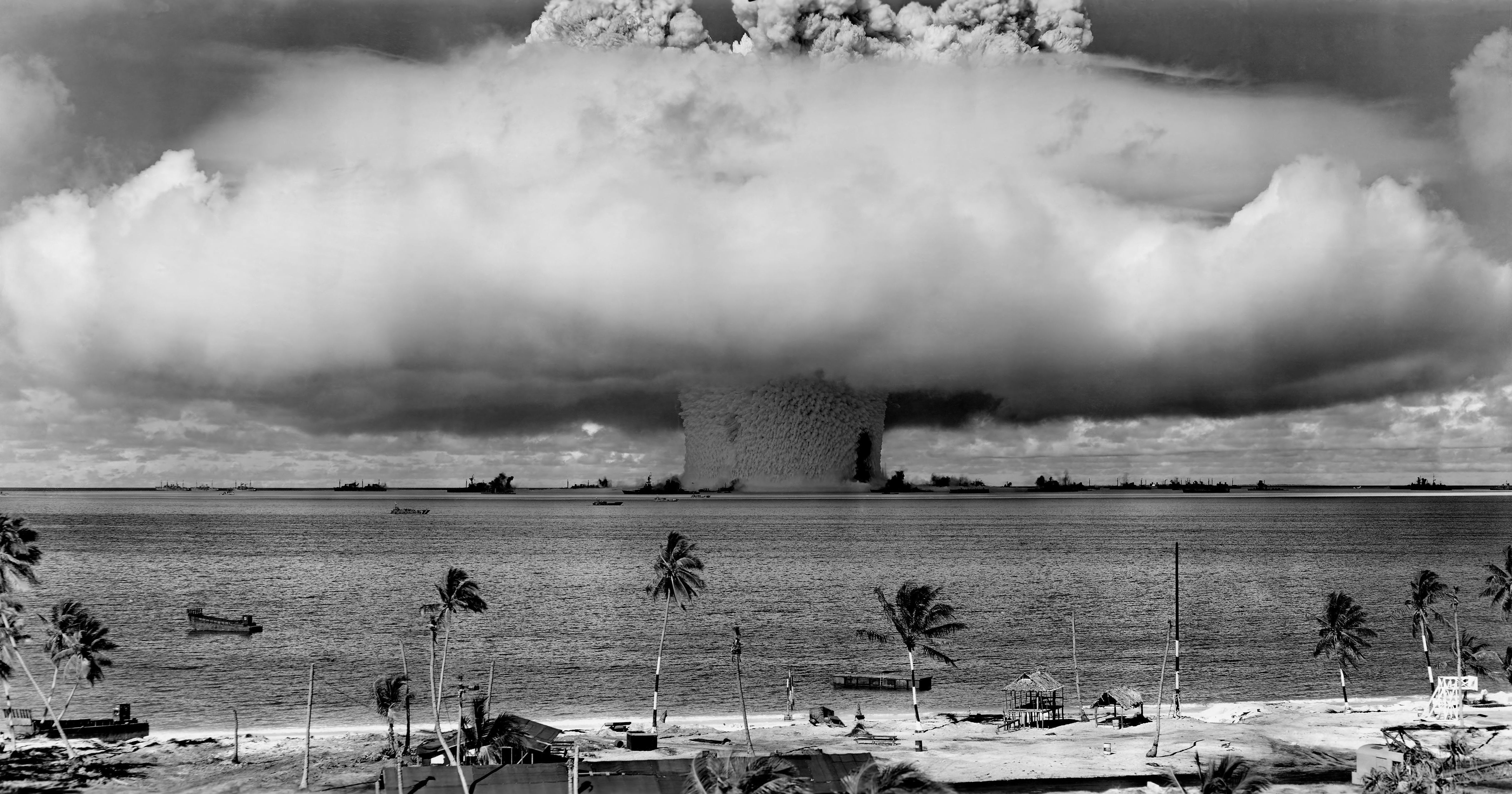Views expressed in opinion columns are the author’s own.
Nuclear proliferation is likely inevitable. Despite various global powers’ diplomatic efforts, deterrence serves only as a fragile, temporary solution, insufficient to prevent further development of nuclear weapons.
The Non-Proliferation Treaty is an international treaty signed in 1968. Its primary objective is to prevent the spread of nuclear weapons. Following its ratification, it effectively preserved the peace and was a significant milestone in a turbulent time.
However, the treaty had a number of key issues. Countries that had already gone nuclear were eager to sign, but enticing some non-nuclear nations to commit proved more difficult. From those countries’ perspectives, they would be giving up any chance at developing nuclear weapons — the future of warfare — to receive tentative protection from countries that possessed the same destructive weaponry they were forbidden to use. Only after repeated concessions was an agreement reached.
In the 2000s, issues regarding the unequal distribution of the nuclear economy arose once again. North Korea decided to withdraw from the treaty and began developing nuclear weapons almost immediately. An official report from the Korean Central News Agency claimed American “aggression” and the need to meet “the increasing energy demand in the people’s economy” were their primary motivations. Despite the obvious lie covering nuclear development as developing hydroelectric and thermoelectric energy, their fear of nuclear threat from the U.S. may be somewhat valid, especially considering the differences in their political ideologies.
Throughout the last two decades, U.S. presidents have attempted to negotiate with North Korea. On Feb. 28, President Trump held a summit with Kim Jong Un in an attempt to negotiate a denuclearization deal. Unsurprisingly, no compromise was reached. While proponents may argue that Trump is simply biding his time and warming up to the foreign dictator, it appears that any possibility of significant progress is still beyond the horizon.
It’s important to understand that while North Korea is no longer actively testing missiles, there is no guarantee that the country isn’t covertly enriching its nuclear arsenal. As Alexandra Bell, senior policy director at the Center for Arms Control and Non-Proliferation, explains: “It’s a good thing that they aren’t testing right now but it doesn’t mean that they can’t advance their program in other ways. … The lack of testing just means that they are comfortable with the designs they have.”
North Korea is not the only country that went rogue. Iran, which initially ratified the Non-Proliferation Treaty in 1970, has repeatedly breached the nuclear restrictions placed upon them and has been subjected to various sanctions. In 1992, Iran signed a secret bilateral nuclear cooperation agreement with Russia, offering to sponsor Iran’s nuclear program. In 2005, Iran admitted that it obtained instructions on how to enrich uranium, which is essential to building nuclear weapons.
It wasn’t until 2015, when Iran and various superpowers signed into effect the Joint Comprehensive Plan of Action, that clandestine developments began to cease. However, in 2018, Trump withdrew from this agreement and reimposed nuclear-related sanctions on Iran. While he didn’t cite any specific violation of JCPOA, it’s clear that he suspected Iran of continuing nuclear operations. Given the current instability in the Middle East, and Iran’s history with terrorism, it would be dangerous to ignore this possibility.
Opponents may argue that these two rogue nations are the only flaws in an otherwise functioning system. However, nuclear threats from these potentially unstable regimes may pressure neighboring countries to nuclearize as well.
In South Korea, many are concerned about the reliability of U.S. protection. South Korea serves as an extremely easy target for its neighbor to the north; it relies solely on the protection of a nation not only thousands of miles away, but also a superpower that is committed to preserving the global political and economic climate. It’s not entirely unreasonable to assume that despite current security treaties — which have often been broken throughout history — the U.S. may have to prioritize the preservation of global peace over the welfare of one nation.
In the Middle East, Egypt and Saudi Arabia could begin developing nuclear arsenals. Israel, which is in constant conflict with Iran, may be forced to play its hand. Given Trump’s apparent distrust of Iran, the U.S. may even have to surreptitiously support such programs, as it would help keep Iran — along with China and Russia, allies of North Korea and Iran — in a form of nuclear stalemate.
Nuclear weapons are capable of unimaginable destruction; the detonation of a single missile would be enough to send the world into chaos. There’s no historical precedent regarding nuclear warfare, since the last time a nuclear bomb was detonated, the U.S. was the only country capable of manufacturing them. This time, the consequences could be apocalyptic warfare the likes of which the world has never seen before.
Kevin Hu is a freshman physiology and neurobiology major. He can be reached at kevxhu@gmail.com.



